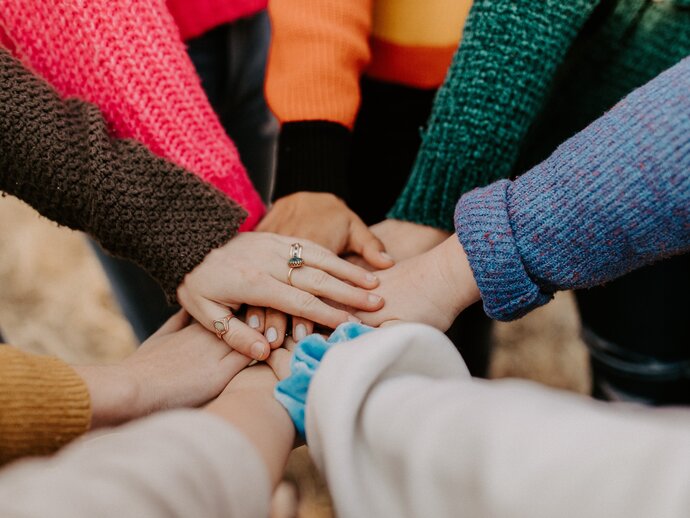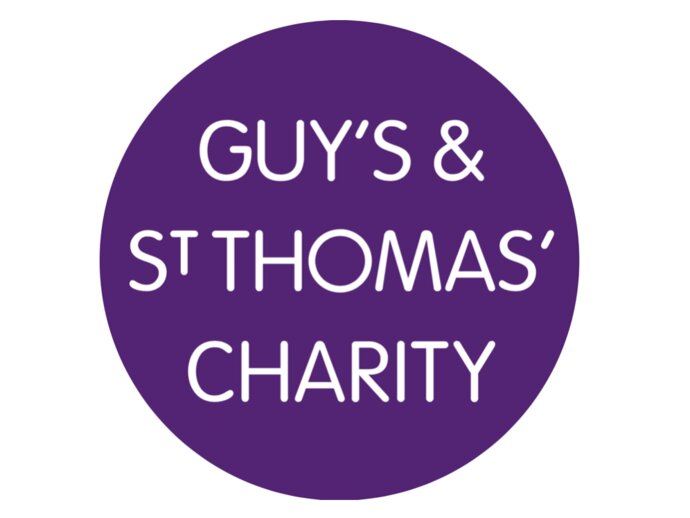Lessons learned: Online co-production during the COVID-19 pandemic
Members of a collaborative research team share their reflections on the challenges and learnings conducting co-produced research online while developing a peer support platform during the COVID-19 pandemic.
As part of a research project at King’s College London (KCL) and an ‘Integrating Mental & Physical healthcare: Research, Training & Services’ (IMPARTS) initiative, we are working to co-produce an online peer support and psychoeducational platform for people living with long term conditions (LTCs), with the aim of preventing comorbid depression. We are proud to say the team includes research advisory group members (patient and public involvement group with lived experience of LTCs), a patient and public participatory design panel, an external design agency: TOAD, King’s College London (KCL) researchers and academics, KCL clinicians, and a co-applicant with lived experience.
In this blog piece, Elly Aylwin-Foster (Co-Applicant with lived experience) and Hannah Rowlands, (Research Assistant) reflect on the experience of being involved in co-production in the context of remote working conditions. Some reflections are specific to working online through the COVID-19 pandemic and although these restrictions will, in time, become a thing of the past we believe the implications of what we learnt will remain relevant. It is important to note that these are our personal reflections.
Elly Aylwin-Foster
Reflecting on a virtual introduction to academia
While many people who become involved in research through patient and public involvement (PPI) (and not the traditional participant/study recruitment route) have experience of academia, others do not. Beyond my bachelor's degree, I had none. Every new working environment has an element of ambiguity, but it was harder knowing what to expect in a research environment without being in a shared physical environment and without face-to-face communication. Understanding things like the institutional norms, how to ‘talk research’ and what ‘good looked like’ in our work took time. My colleagues were extremely accommodating and made it clear that there was no such thing as a silly question. But there are some things we have considered doing differently in the future to speed up the onboarding process. These include creating a project-specific dictionary, which would include common terms from both the research area, the department or discipline and the wider institution. We hope this could make future collaborations with non-researchers as accessible and transparent as possible.
Ask what you can give back to co-producers, not just what they give to the work
If a goal of research is to deepen the PPI input, it’s always worth considering what the research could offer someone beyond the requisite reimbursement for their time. For instance, how will it enhance their skills and employability. My role has involved everything from thematic analysis of focus groups, presenting, paper writing, and working with our chosen design and development agency. This is perhaps a broader scope than typical PPI activities. Thinking bigger and creating rich PPI roles could incentivise applications from outside the normal recruitment 'pools', bringing with it greater diversity of experience and background.
It's easy to overlook or not find time, but from a personal perspective I’d like to highlight the importance of informal catch ups within the project schedule. The wide-ranging discussions on healthcare, the future of peer support and even the minutiae of daily walks and weekend plans added back some of the colour and humanity that virtual working can take away. As someone who shielded for 11 months that meant a lot but it’s also part of the reason PPI is so vital; it’s this range of experience and perspective which improves the output. Key insights or breakthroughs can come just as often from a spontaneous chat as they do from a structured research activity.
Hannah Rowlands
Hierarchy and power need to be challenged
It has been important for us to reflect on what co-production means for this project in this context. There is a big difference between working in a tokenistic way and incorporating a co-produced participatory approach from the outset and throughout the study. We are striving to achieve the latter but acknowledge that we have learnt along the way and there is further opportunity for development. Fundamentally, power and hierarchy in the research environment are challenging aspects of virtual co-production that need to be continually discussed and reflected on. Every stakeholder and member of the team should feel as though they are valued and connected to the team. This can feel particularly challenging in the current virtual world we are working in. Having open and honest discussions with stakeholders throughout the process is key. It is also important that I continually reflect on my involvement and the dynamics I might perpetuate. A resource that I refer to often and really recommend to others involved in co-production is the Reflective Questions to Support Co-Produced Research (NIHR, Applied Research Collaboration West, 2020).
Design ways of working together, based on individual needs
Lived experience does not define a peer-researcher or stakeholder’s identity but is an experience that can meaningfully inform research in that area. When working with people who identify as having lived experience it has been important for me to actively listen to what this means for them. We have designed and adapted our ways of working together based on individual needs in the team, not a templated approach. This simply means taking the time to discuss and piece together appropriate ways of working for the team. For example, sending emails only on agreed days, having what we called ‘suggested dates’ instead of deadlines and arranging meetings at flexible times in the day. We continue to build time into meetings to reflect on our ways of working and adapt as necessary throughout the process.
Any co-produced project must foster a working environment that is reciprocal, values-based and one where every member of the team is truly treated with equal importance. Taking the time as a team to openly discuss the ways in which we work as the project develops, is key to laying the foundations in which more purposeful research can be carried out. Appreciating personal circumstances has perhaps taken on more significance during the pandemic. Working through these times has highlighted the importance of accommodating everyone’s needs, whether a health condition, a change in living situation or responsibilities at home; compassion is a prerequisite.
This work has been funded by King’s Health Partners and Impact on Urban Health, through their Multiple Long-Term Conditions Challenge Fund.
If you would like to find out more about our online peer support platform, CommonGround, and the next stages of our research, you can check our main webpage. If you are living with a long-term condition and are interested in taking part in the trial we are running to evaluate what people think of our new intervention, click here to find out more: https://bit.ly/commongroundresearch. If you want to talk to the research team, please email us at commonground [at] kcl [dot] ac [dot] uk.
You can also read the other two blogs that we have on QUAHRC here:

